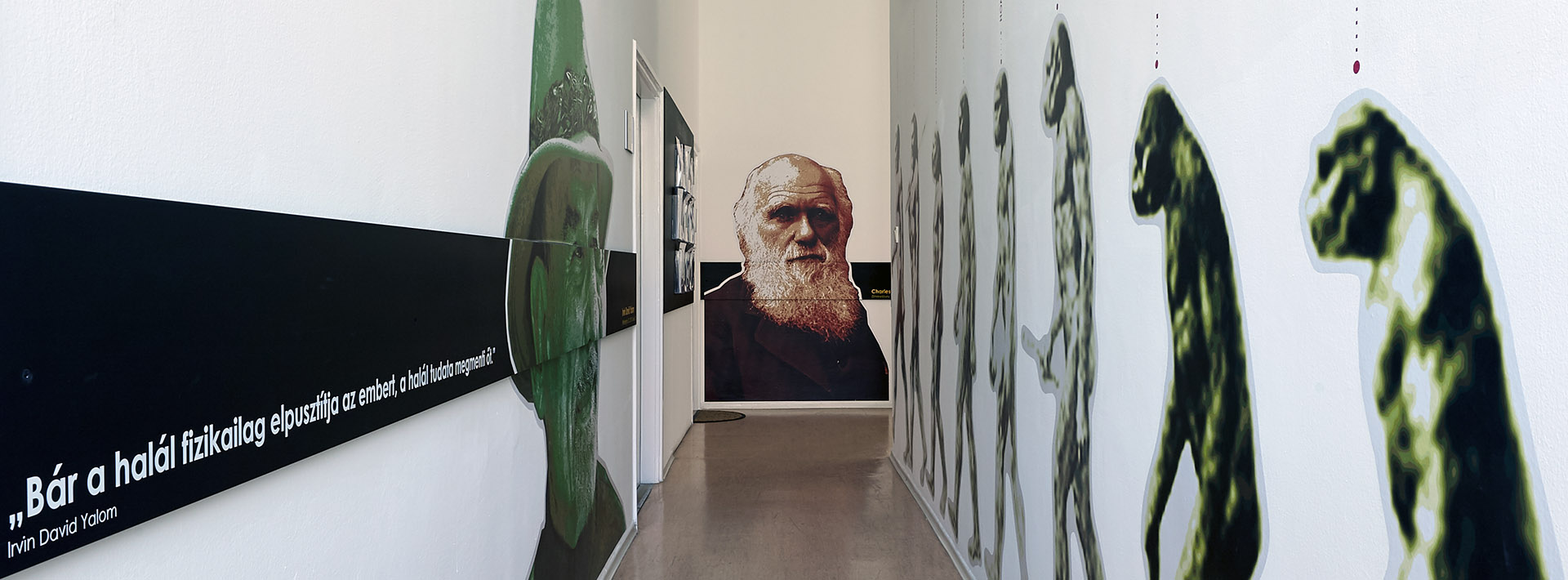Adatok
A Tantárgybejelentőben megadott hivatalos adatok az alábbi tanévre: 2019-2020
Tantárgyfelelős
-
Dr. Árpád István CSATHÓ
associate professor,
Department of Behavioural Sciences
Óraszámok/félév
előadás: 14 óra
gyakorlat: 0 óra
szeminárium: 0 óra
összesen: 14 óra
Tárgyadatok
- Kód: OSE-ANT-T
- 1 kredit
- Dentistry
- Elective modul
- autumn
Nincs
Kurzus létszámkorlát
min. 5 fő – max. 35 fő
Tematika
Medical Anthropology can shortly be described as a subfield of anthropology that draws upon psychological, cultural, and biological anthropology to better understand those factors which influence human health and well-being. Within this scope, there are many different conceptual approaches, and one of these, the adaptational or ecological approach, receives a special focus during the course. Thus, the discussion of the course topics put an emphasis on the three different mechanisms of adaptation acquired by individuals to adapt to an environment: the biological, cultural and psychological adaptations. By attending the course, students will understand the basic concepts of medical anthropology, and acquire knowledge about the interactions between the many different influential factors (e.g. biological and cultural factors) of human health and behavior.
Előadások
- 1. The subject and subfields of medical anthropology. Health concepts. - Dr. Csathó Árpád István
- 2. The concept of adaptation and plasticity in medical anthropology. - Dr. Csathó Árpád István
- 3. Urban ecology: The effects of urbanization on health. - Dr. Csathó Árpád István
- 4. Stress as a bio-cultural interaction. - Dr. Csathó Árpád István
- 5. Pain perception, and its bio-cultural variability. - Dr. Csathó Árpád István
- 6. Placebo-nocebo effects. The anthropology of the drug effects. - Dr. Csathó Árpád István
- 7. Mortality and the basic concepts of demography. - Dr. Csathó Árpád István
- 8. The concepts of death. The development of the death belief in childhood. - Dr. Csathó Árpád István
- 9. Behavioural science models for human addiction. - Dr. Csathó Árpád István
- 10. Human nutrition in a biocultural context. - Dr. Csathó Árpád István
- 11. The interactions of environmental and biological factors on physical development. The concept of secular trends. - Dr. Csathó Árpád István
- 12. The anthropology of human aging. - Dr. Csathó Árpád István
- 13. The types of the environment, gene-environment interactions. - Dr. Csathó Árpád István
- 14. Philosophical anthropology. - Dr. Szolcsányi Tibor
Gyakorlatok
Szemináriumok
A tananyag elsajátításához szükséges segédanyagok
Kötelező irodalom
-
Saját oktatási anyag
Avaiable on Neptun
Jegyzet
-
Ajánlott irodalom
Donald Joralemon: Exploring Medical Anthropology, Allyn and Bacon, 1999
Tony McMichael: Human Frontiers, Environments and Disease, Cambridge, Univ. Press, 2001
Peter J. Brown: Understanding and Applying Medical Anthropology, Mayfield Publishing C., London, 1998
A félév elfogadásának feltételei
According to the Code of Studies and Examinations
Félévközi ellenőrzések
-
Távolmaradás pótlásának lehetőségei
According to the Code of Studies and Examinations
Vizsgakérdések
Exams are organized during the exam period on the days announced well in advance. The exam has two parts organized one after to the other on the same day: a short written part followed by an oral part. On each exam day, first, the students need to write a short test having about 20 simple-choice test questions, lasting about 20 minutes. The questions in the test are related to the topics listed below. The test writing will be immediately followed by the oral part of the exam. During the oral part the students are required to discuss two of topics with examiner extensively. The final grade received by the students is calculated based on the written and the oral grades.
1. Interpretation of the different concepts of health.
2. The classification of the adaptation processes based on their mechanisms and the time constrain (i.e. duration).
3. Explanation of acclimatization with examples.
4. Explanation of cultural adaptation with examples.
5. Main methods to investigate adaptation processes to urban environment.
6. Explanation of acculturation with examples.
7. The description of the main stages of cultural shock with examples.
8. The effect of cultural and behavioural factors on the biological stress response. The main stages of the General Adaptation Syndrome.
9. The socio-cultural effects on pain perception and pain reactions. Cultural differences in the consideration of pain.
10. Differences in pain quality and pain duration: phasic vs. tonic pain, acute vs. chronic pain.
11. The microcontextual and the macrocontextual elements of the total drug effect.
12. Definition of placebo and nocebo effects with examples.
13. The calculation of the crude and the specific mortality rates. The changes in human mortality as a function of age.
14. The main stages of the concept of death in childhood.
15. The concept of the secular trends. The effects of the biological and cultural factors on the development of the positive and negative secular trends.
16. The biocultural background of eating disorders.
Vizsgáztatók
- Dr. Csathó Árpád István
- Dr. Szolcsányi Tibor
